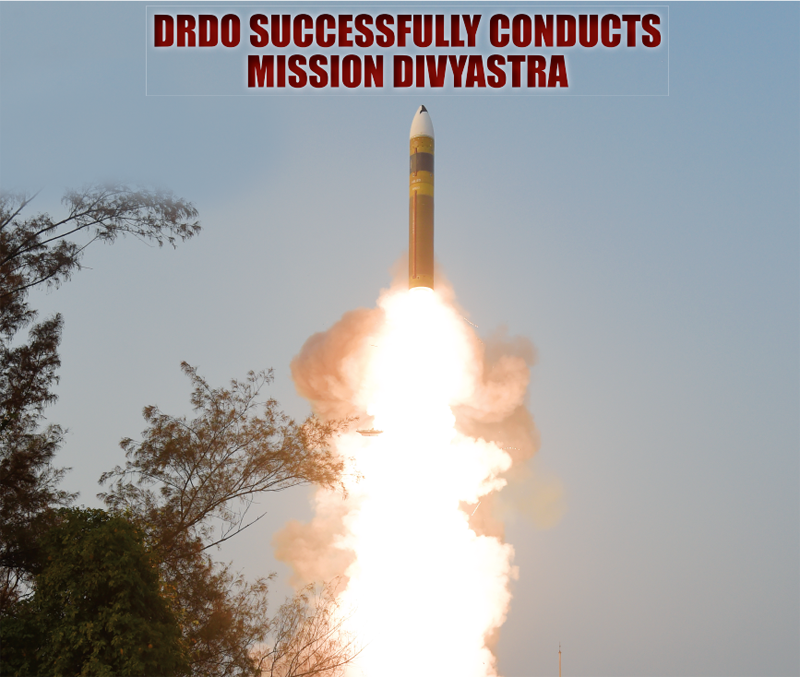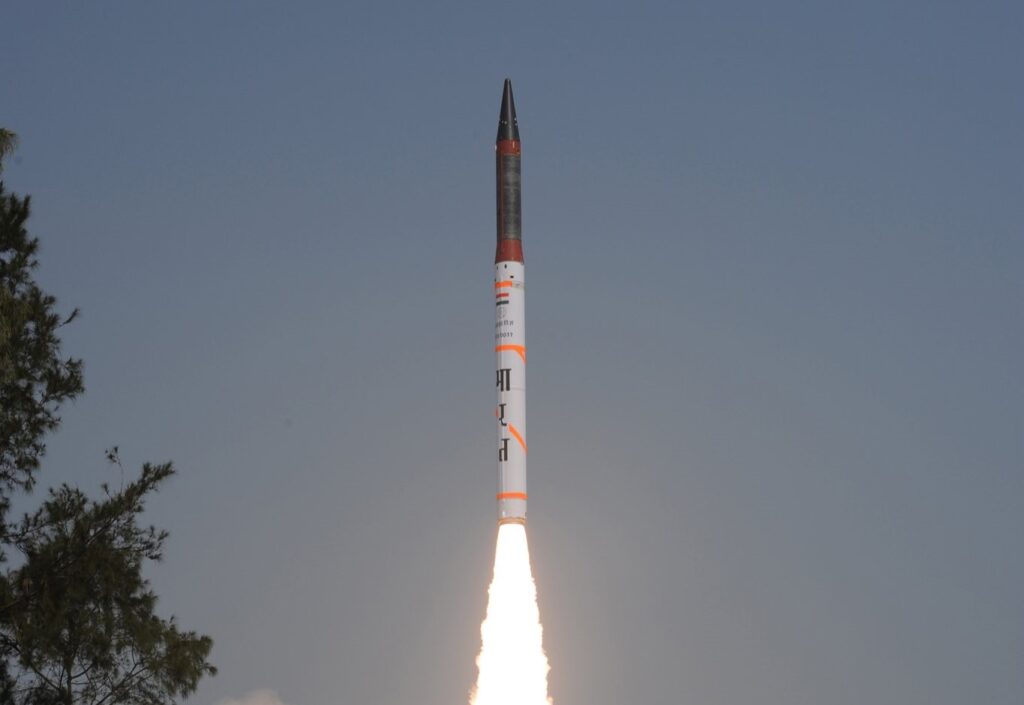India Carries Out Successful Test of its 4,000KM Range Agni-4 IRBM
India’s Strategic Force Command (SFC) carried out a user trial of the Agni-4 Intermediate Range Ballistic Missile from the Integrated Test Range (ITR) in Chandipur, Odisha on September 06, 2024. The launch successfully validated all operational and technical parameters. India issued a notification for a no-fly zone over the Bay of Bengal on August 28, 2024, the NOTAM (Notice to Air Mission) covering a maximum length of over 2,600km. The area warning came into effect at 1600 (Indian Standard Time) on September 6, 2024, and the press release was issued at 2032 (IST), indicating a night launch of Agni-4 IRBM.
Agni-4
The Agni series of missiles are developed by the Defence Research and Development Organisation (DRDO) for the SFC. Agni-4 was first tested in November 2011 off the coast of Odisha, with a full range test of 4,000km carried out in September 2012. It was inducted into the tri-service Strategic Force Command with its fourth successful test in December 2014. The Strategic Force Command is part of India’s Nuclear Command Authority (NCA). Agni-4 can deliver a nuclear payload of over 1,000kg at a range of around 4,000km with double-digit precision of <100m CEP (Circular Error Probability).
MIRV and BMD

India has been working on improving its nuclear deterrence with the successful test of Multiple Independent Re-entry Vehicles (MIRVs) earlier this year in March 2024 under ‘Mission Divyastra’. The multiple re-entry vehicles make it hard for an adversary to track, intercept and defend against a nuclear attack.
India also carried out a second successful test of Phase II Ballistic Missile Defence (BMD) in July 2024. The test demonstrated the technology to defend against ballistic missiles of 5,000km class. The Phase II BMD includes two interceptors, AD-1 and AD-2, capable of intercepting ballistic missiles of up to and over 5,000km respectively. The technology is vital as India is surrounded by two nuclear-armed countries.
Regular tests of such systems are carried out to validate the proper working of missiles and train crew for Standard Operation Procedures (SOPs).

